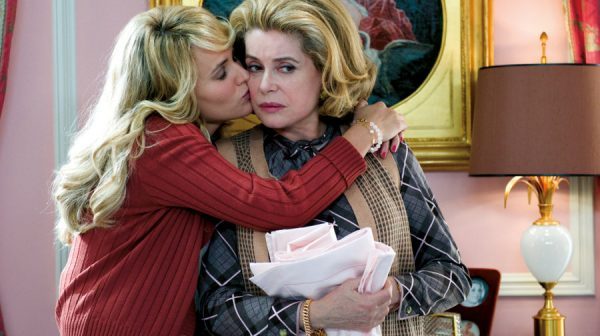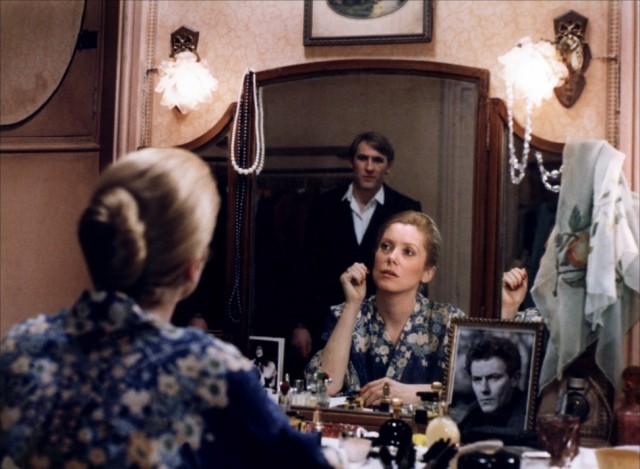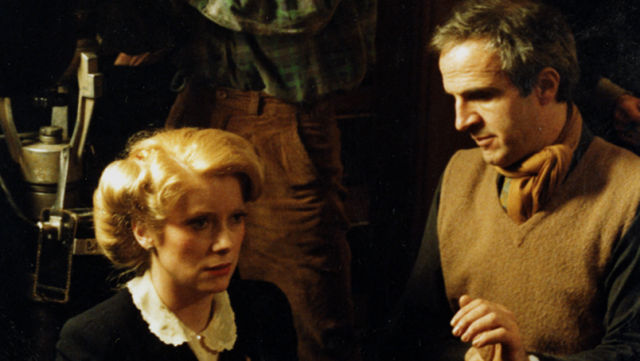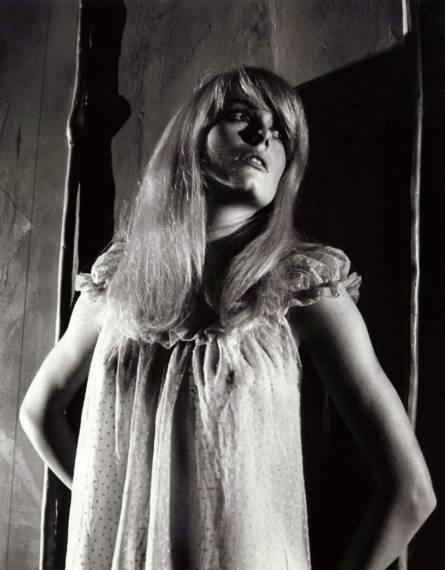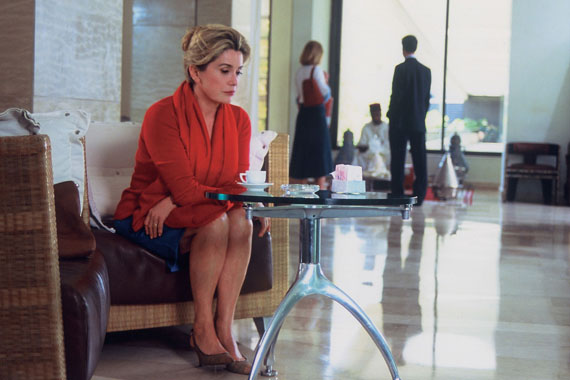
Gérard Depardieu stars as a man claiming to be a long-missing peasant in Daniel Vigne’s The Return of Martin Guerre
THE RETURN OF MARTIN GUERRE (LE RETOUR DE MARTIN GUERRE) (Daniel Vigne, 1982)
Quad Cinema
34 West 13th St. between Fifth & Sixth Aves.
Opens Friday, July 5
212-255-2243
quadcinema.com
 Identity theft was much different in the sixteenth century than it is today. Daniel Vigne’s award-winning 1982 drama, The Return of Martin Guerre, relates the based-on-fact story of a man who has come back to the small, poor village of Artigat in the French countryside after being away for nearly a decade, fighting a war and journeying across Europe. “You will not regret having followed this story, for it is neither a tale of adventure nor an imaginary fable,” a narrator says at the beginning of the film. “It is a true story.” It also looks and sounds better than ever, in a lovely 4K director’s cut restoration opening at the Quad on July 5. The rather quiet and dull Martin Guerre (Stéphane Pean) disappears one night in 1542, to the consternation of his wife, Bertrande de Rols (first Sylvie Méda, then Nathalie Baye). She raises their son, Sanxi Guerre (Adrien Duquesne), by herself, with the help of her family, and remains faithful to Martin, believing he will return. Years later, Martin (Gérard Depardieu) suddenly shows up, more educated and worldly, filled with tales of his time away. The villagers are quick to welcome him back into the fold, including Bertrande and Sanxi; Martin’s sister Guillemette (Valérie Chassigneux); their uncle Pierre (Maurice Barrier), who has run the farm and married Bertrande’s mother, Raimonde de Rols (Rose Thiéry); and Martin’s friend Jacques (Philippe Babin). But slowly some of the peasants start questioning whether this Martin is actually an imposter taking advantage of Bertrande and Artigat, which leads to the arrival of Jean de Coras (Roger Planchon) of the Toulouse Parlement to interview Bertrande.
Identity theft was much different in the sixteenth century than it is today. Daniel Vigne’s award-winning 1982 drama, The Return of Martin Guerre, relates the based-on-fact story of a man who has come back to the small, poor village of Artigat in the French countryside after being away for nearly a decade, fighting a war and journeying across Europe. “You will not regret having followed this story, for it is neither a tale of adventure nor an imaginary fable,” a narrator says at the beginning of the film. “It is a true story.” It also looks and sounds better than ever, in a lovely 4K director’s cut restoration opening at the Quad on July 5. The rather quiet and dull Martin Guerre (Stéphane Pean) disappears one night in 1542, to the consternation of his wife, Bertrande de Rols (first Sylvie Méda, then Nathalie Baye). She raises their son, Sanxi Guerre (Adrien Duquesne), by herself, with the help of her family, and remains faithful to Martin, believing he will return. Years later, Martin (Gérard Depardieu) suddenly shows up, more educated and worldly, filled with tales of his time away. The villagers are quick to welcome him back into the fold, including Bertrande and Sanxi; Martin’s sister Guillemette (Valérie Chassigneux); their uncle Pierre (Maurice Barrier), who has run the farm and married Bertrande’s mother, Raimonde de Rols (Rose Thiéry); and Martin’s friend Jacques (Philippe Babin). But slowly some of the peasants start questioning whether this Martin is actually an imposter taking advantage of Bertrande and Artigat, which leads to the arrival of Jean de Coras (Roger Planchon) of the Toulouse Parlement to interview Bertrande.
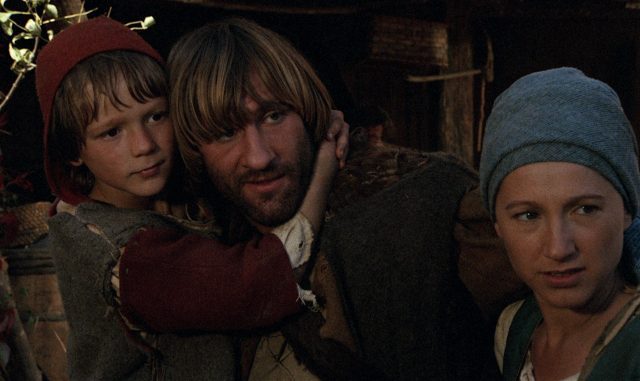
A family is reunited in The Return of Martin Guerre — or is it?
Written by honorary Oscar winner Jean-Claude Carrière (Danton, The Discreet Charm of the Bourgeoisie) and Vigne (One Woman or Two, Jean de La Fontaine — le défi ) with Natalie Zemon Davis, a Princeton University professor and historian who consulted on the film and later wrote a book on the subject, The Return of Martin Guerre is gorgeously photographed by Andre Neau, inspired by the paintings of Dutch masters Johannes Vermeer and Pieter Brueghel the Elder. The film won three Césars, for Best Original Screenplay, Best Music (Michel Portal), and Best Production Design (Alain Negre), and received a nomination for Most Promising Actor (Dominique Pinon, who would become a mainstay in the films of Jean-Pierre Jeunet), in addition to an Oscar nod for Best Costume Design (Anne-Marie Marchand); it was also remade by Jon Amiel in 1993 as the Civil War drama Sommersby with Richard Gere and Jodie Foster. Depardieu is big and boisterous as the man claiming to be Martin, while Baye is soft and gentle as Bertrand in the second of seven films they have made together. The Return of Martin Guerre might be set nearly half a millennium ago, but its exploration of faith, honor, virtue, poverty, the law, education, and truth, as well as how people can change over time — or not — is not as old-fashioned as it might at first seem in this age of fake news, income inequality, religious extremism, and social media.
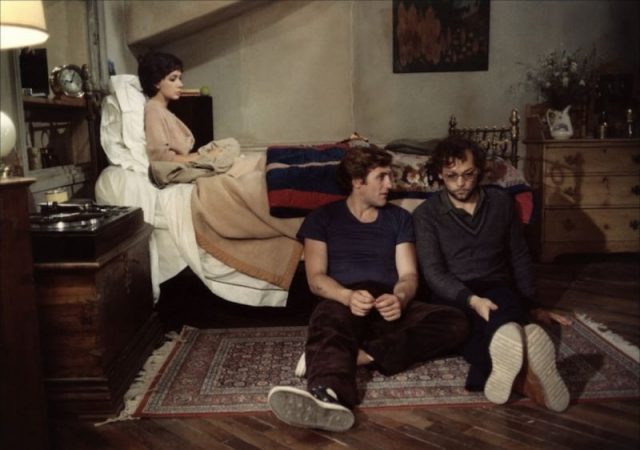
 French writer-director Bertrand Blier’s Oscar-winning Get Out Your Handkerchiefs is no weepy melodrama. If you need hankies while watching, they’ll be for the tears rolling down your face from laughter. A fortieth-anniversary 2K restoration is screening March 15-21 in the Quad series “Amour or Less: A Blier Buffet,” a nine-film celebration of the five-decade career of the controversial auteur, who has been regularly labeled a misogynist. Get Out Your Handkerchiefs has stirred up its share of naysayers through the years, so it’s fascinating to watch it now, in the midst of the #MeToo movement. The film opens in a restaurant where the brutish, doting Raoul (Gérard Depardieu) is eating with his bored, disinterested wife, Solange (Carole Laure). Suspecting that she is stealing glances at a man seated at a table behind him, Raoul approaches him, a schoolteacher named Stéphane (Patrick Dewaere), and practically begs him to sleep with his wife. Raoul, a driving instructor, loves Solange so much that he is willing to go to great lengths to make her happy, even if it means sharing her bed with another man.
French writer-director Bertrand Blier’s Oscar-winning Get Out Your Handkerchiefs is no weepy melodrama. If you need hankies while watching, they’ll be for the tears rolling down your face from laughter. A fortieth-anniversary 2K restoration is screening March 15-21 in the Quad series “Amour or Less: A Blier Buffet,” a nine-film celebration of the five-decade career of the controversial auteur, who has been regularly labeled a misogynist. Get Out Your Handkerchiefs has stirred up its share of naysayers through the years, so it’s fascinating to watch it now, in the midst of the #MeToo movement. The film opens in a restaurant where the brutish, doting Raoul (Gérard Depardieu) is eating with his bored, disinterested wife, Solange (Carole Laure). Suspecting that she is stealing glances at a man seated at a table behind him, Raoul approaches him, a schoolteacher named Stéphane (Patrick Dewaere), and practically begs him to sleep with his wife. Raoul, a driving instructor, loves Solange so much that he is willing to go to great lengths to make her happy, even if it means sharing her bed with another man.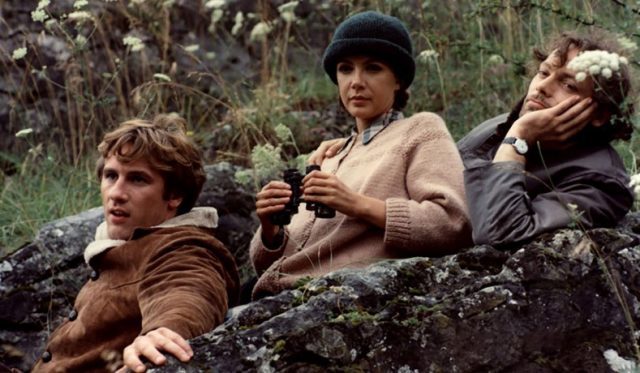
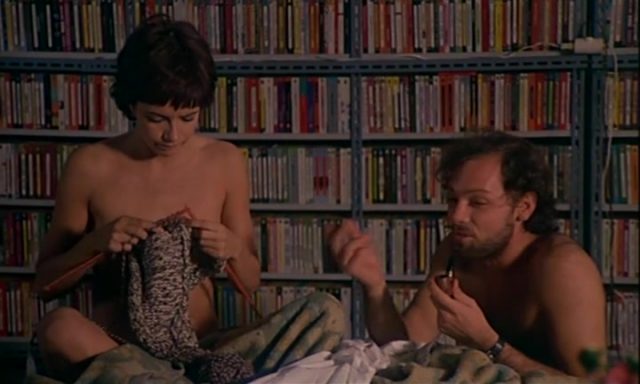
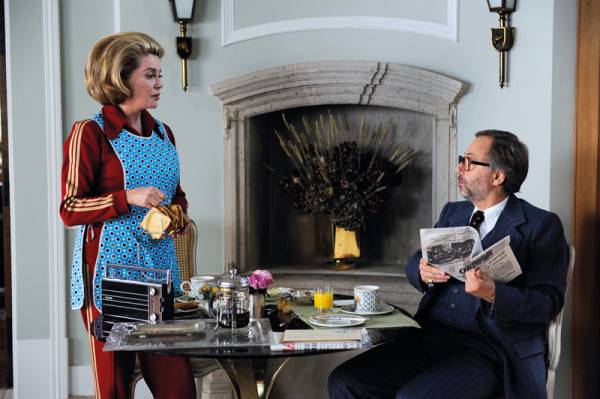
 For the tenth anniversary season of Films on the Green, presented annually in parks around the city by the French Embassy — Cultural Services, the selections were made by a collection of guest curators; the 2017 summer series kicks off June 2 with François Ozon’s Potiche (Trophy Wife), which was chosen by actress and comedian
For the tenth anniversary season of Films on the Green, presented annually in parks around the city by the French Embassy — Cultural Services, the selections were made by a collection of guest curators; the 2017 summer series kicks off June 2 with François Ozon’s Potiche (Trophy Wife), which was chosen by actress and comedian 